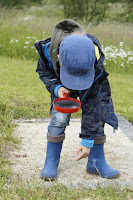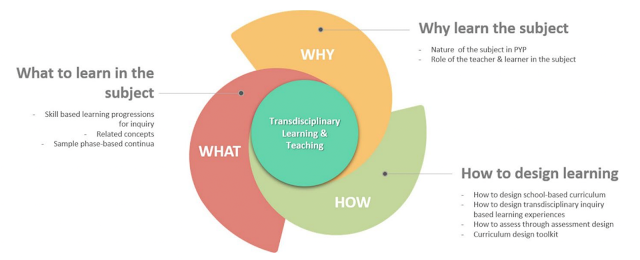First, a quick recap for anyone who did not read the previous post. In April this year a Learning progression development report was published. It stated that most curriculum is divided into standards that are chunked into discrete year levels, rather than showing connections over time. The idea of the PYP progressions is to give explicit support to teachers so that they understand not just what learning looks like, but also how it fits into the picture of what has come before and what students will engage in later. The aim, therefore, is to identify the transferable skills that can be developed through the subjects. For example we talk about IB students being inquirers, so the aim is to describe what inquiry looks like in each subject, what skills are involved, how to develop them, and how to monitor and evidence the progress of these skills.
Subject guidance will be published next year and will include the following (Fig 2, taken from the above publication)
- Language skills can include identifying purpose and context, perspectives, evaluating, questioning and challenging ideas and information.
- Mathematical skills include finding patterns, data collection and evaluating and justifying conclusions.
- Arts skills include exploring tools, processes and materials.
- Science skills include predicting, hypothesising, designing and interpreting data
- Social studies skills include posing and refining research questions, utilising primary and secondary sources, timelines and sequencing, and considering the reliability of evidence sources.
- PSPE skills include identifying, refining strategies and reflection.


No comments:
Post a Comment